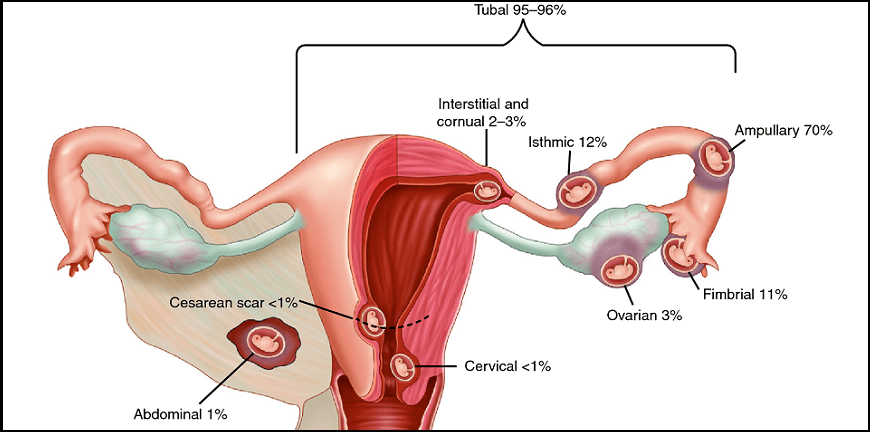Blocked Fallopian Tubes
For pregnancy to happen, the ovary has to release an egg into the fallopian tube, where it stays for about 24 hours. There it has to come in contact with a sperm to be fertilized. The fertilized egg stays in the fallopian tube for 3 or 4 days before it heads to the uterus. There it attaches to the lining and continues to grow until a baby is born.
But if the fertilized egg implants in your fallopian tube or somewhere else in your abdomen, you end up with what’s called an ectopic pregnancy. In these cases, the pregnancy can’t continue normally, and it requires emergency treatment.
Symptoms :
Most of the time, an ectopic pregnancy happens within the first few weeks of pregnancy. You might not even know you're pregnant and may not have signs of a problem.
Light vaginal bleeding and pelvic pain are usually the first symptoms, but others could include:
Causes:
You may never know why you have an ectopic pregnancy. One cause could be a damaged fallopian tube. It could prevent the fertilized egg from getting into your uterus, leaving it to implant in the fallopian tube or somewhere else.
But you are more likely to have an ectopic pregnancy if you have any of the following:
It could also happen if you become pregnant with an intrauterine device (IUD) in place.
Diagnosis:
If your doctor thinks you have an ectopic pregnancy, she will probably perform some tests, including a pregnancy test and a pelvic exam. An ultrasound test may be performed to view the uterus’ and fallopian tubes’ condition. If she confirms you have an ectopic pregnancy, she will talk to you about the best treatment based on your medical condition and your future plans for pregnancy.
Treatments:
Because a fertilized egg can’t survive outside of the uterus, the tissue has to be removed to keep you from having serious complications. Two methods are used to treat it: medication and surgery. Medication. If your fallopian tube hasn’t ruptured and your pregnancy hasn’t progressed very far, your doctor can give you an injection of methotrexate (Trexall). It stops the cells from growing, and your body will simply absorb them. Most ectopic pregnancies can be treated with methotrexate if they’re caught early.
Surgery:
In other cases, surgery is required. The most common is laparoscopy. Your doctor will make very small incisions in your lower abdomen and insert a thin, flexible instrument (laparoscope) to remove the ectopic pregnancy. If your fallopian tube is damaged, she may have to remove it as well.If you’re bleeding heavily or your doctor suspects your fallopian tube is ruptured, you might need emergency surgery with a larger incision. This is called laparotomy.
What To Expect After Surgery:
If you have a laparoscopy procedure, you will likely go home the same day and can do your normal activities within 24 hours. Your return to normal activities will depend on how quickly you recover from surgery, which may take a few days or as long as 2 to 4 weeks.
After an Ectopic Pregnancy :
There is a good chance you can have a normal pregnancy again, but it might be hard. You should consider talking to a fertility specialist early, especially if you had a fallopian tube removed. And talk to your doctor about how long to wait before trying again. Some doctors suggest at least 3 to 6 months. If you’ve already had an ectopic pregnancy, your chances of having another one go up. Dr. Kapil Kanade is one of the most experienced laparoscopic surgeons in the Maharashtra. Dr. Kapil Kanade had already done more than 450 Ectopic Pregnancy Surgery Successfully.
